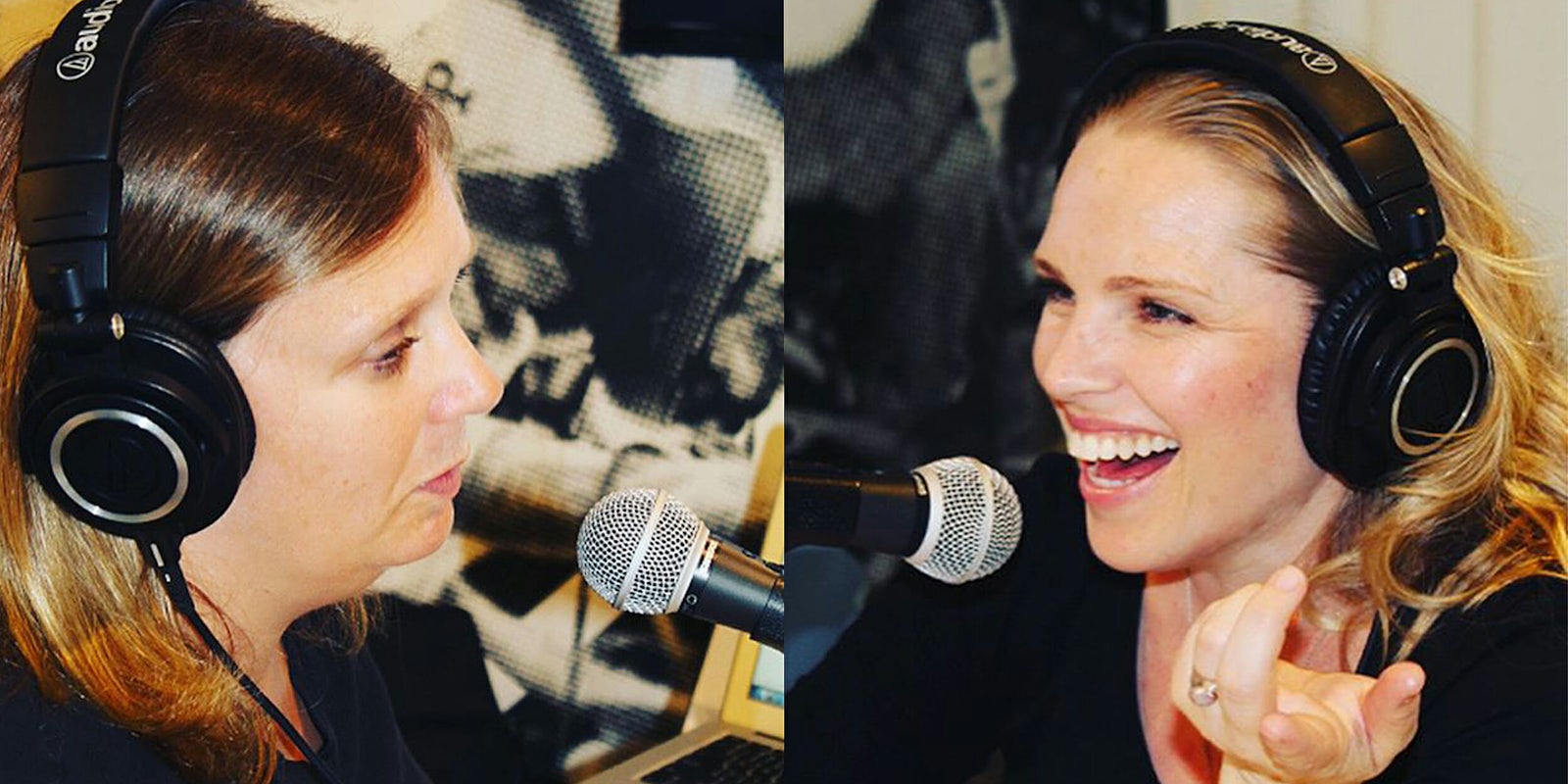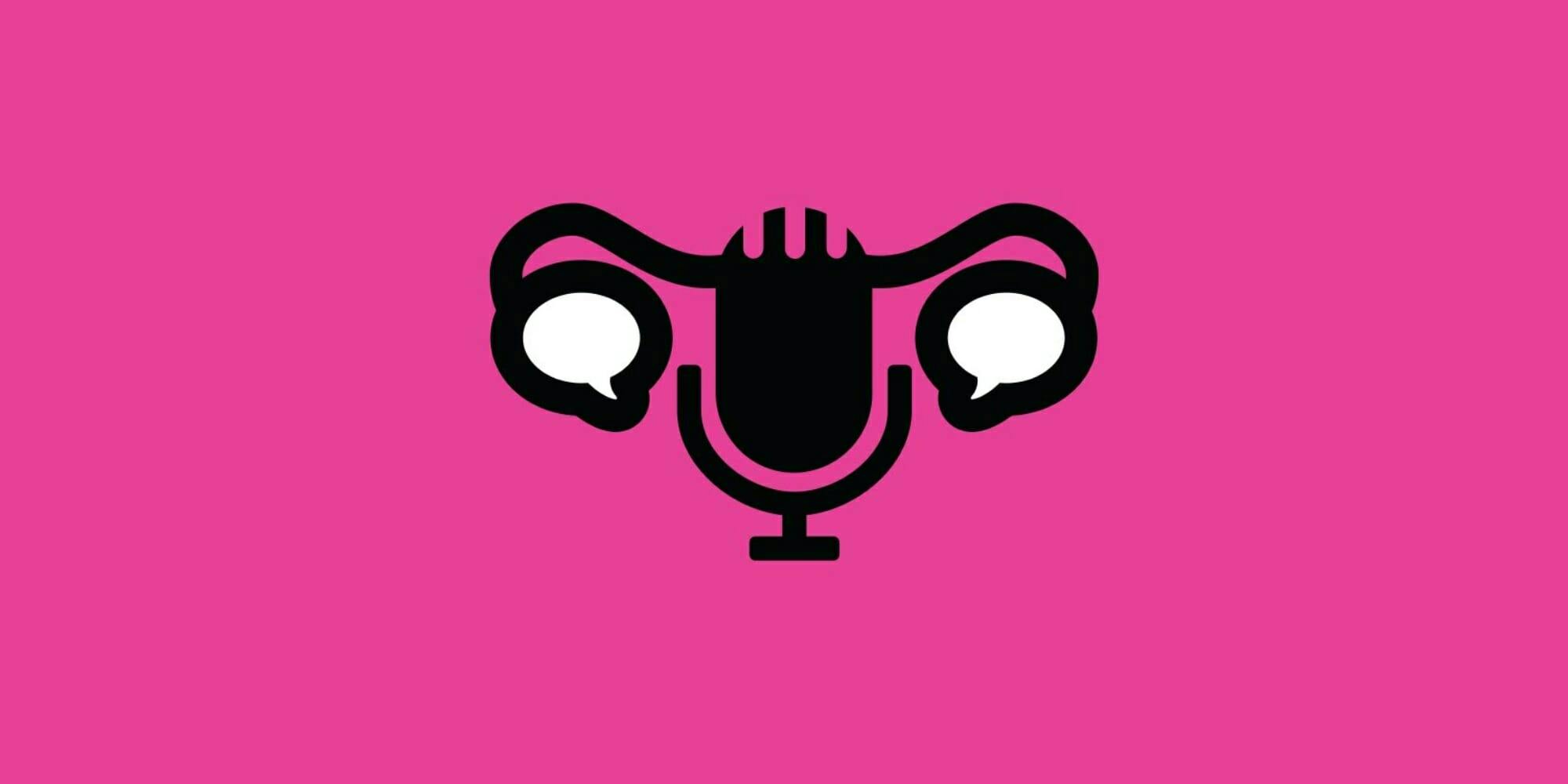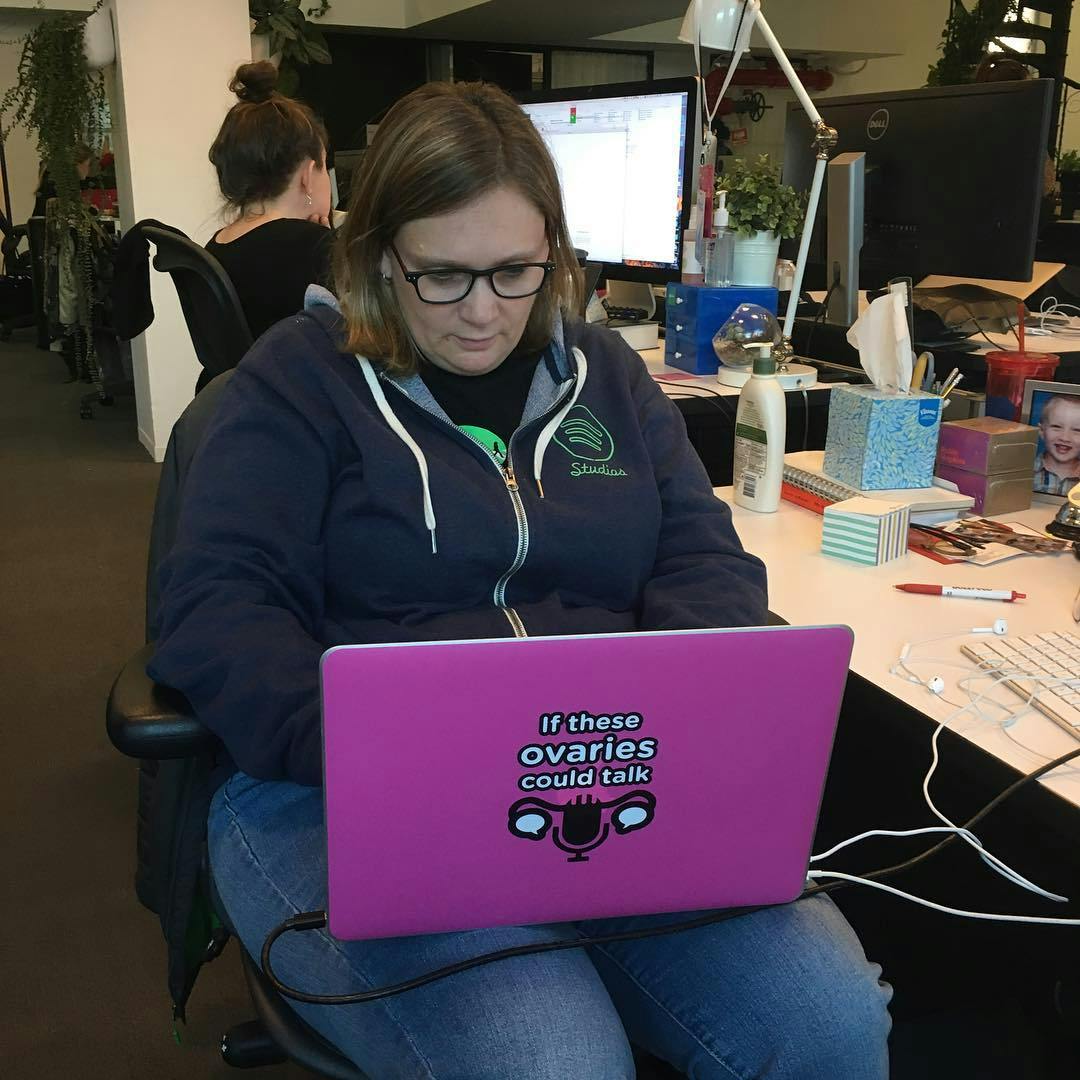What’s it like to be part of a queer family? It’s incredibly common, for one. 37 percent of all LGBTQ adults have had a child, and as many as 6 million American children have a parent who identifies as lesbian, gay, bisexual, or transgender, according to a 2013 study from the Williams Institute. Not to mention, there are more than 170,000 children being raised by a gay couple—that’s enough kids to fill Harvard University at least seven times over.
Yet while queer parenting remains relatively common in real life, nontraditional families’ stories are rare in pop culture. Thankfully, now LGBTQ families can turn to a new podcast called If These Ovaries Could Talk.
The series, which was created by queer parents Jaimie Kelton and Robin Hopkins, focuses entirely on what it’s like to be a parent or child from an LGBTQ family. It tackles everything from lesbian pregnancy’s hardships to growing up with gay parents, with Kelton and Hopkins bringing on a diverse range of voices that explore the LGBTQ family experience.
“When you look at the podcast landscape today, there really aren’t many LGBTQ podcasts period, forget about podcasts focusing on nontraditional families,” Hopkins told the Daily Dot. “We feel like there’s this void and we want to share these incredible stories. And people want to hear them.”
The struggles with LGBTQ parenting
If These Ovaries Could Talk first began with an idea from Kelton. After her wife, Anne, carried their first baby, Kelton decided to have their second child. But in order to become pregnant, Kelton went through three IVFs and 10 IUIs over two and half years. She describes that moment as “a bit dark for me emotionally,” and when she sifted through books, videos, and podcasts to learn about other queer women’s experiences with artificial insemination, she quickly found most stories centered on straight couples.
That’s when Hopkins, an actress and writer, got involved. Kelton bumped into Hopkins at a gay pride family picnic and brought up the idea to create a podcast around queer pregnancy. But the more time that went into production, the more both women realized If These Ovaries Could Talk should focus on the stories behind the parents and families involved in LGBTQ family life. Particularly, their stories as family members, not just as parents.
“As soon as we began delving into the show—scripting and guest research, etc., we realized that what makes If These Ovaries Could Talk so special is these people’s stories,” Kelton said. “Yes, we talk about what they went through to make their family, but it’s much more than that; it’s what it’s like to live in their particular family. Obstacles, fears, parenting, sexuality. All of it.”
For instance, during the show’s first episode, Kelton and Anne point out how they were regularly told as young women that becoming pregnant is extremely easy, especially compared to older women. So at first blush, the two mothers thought Kelton’s pregnancy would be a cakewalk. But in reality, fertility is extremely complicated, and successfully fertilizing an egg through artificial insemination isn’t as simple as being exposed to sperm.
As it turns out, being a lesbian couple complicated artificial insemination, in part because medical institutions are designed primarily around straight couples, not queer ones. So when Kelton struggled to become pregnant, the couple tore through money on harvesting eggs. At one point, the two mothers thought they ran out of sperm through their donor, forcing them to “buy” the donor “out of retirement,” and thus get more sperm from him—only to find that there was more sperm in storage after all. Medical bureaucracy can make queer childrearing extremely stressful and costly, on top of the already-hefty emotional and financial tolls.
While Kelton’s parenting story might not sound relatable to many young lesbian couples just entering into a serious relationship (after all, childrearing feels decades away when you’re 21 or 22), the couple has faced the same stigmatization that other queer women experience before even remotely considering parenthood. In many ways, being a queer parent is one of the most visible acts a queer person can ever engage in. That’s because queer parents defy all normative expectations of what parents “should” look like in American society.
“I think it’s important to note that when you choose to have kids in an LGBTQ relationship, if there’s any portion of you that’s in the closet, it’s gonna bring you out big-time,” Kelton told the Daily Dot. “It’s a front and center fact about your family at the playground or at your kids’ schools or in your community. But I think that’s a good thing because it forces an openness that is good for the community.”
Challenging how we look at family
Down the road, If These Ovaries Could Talk is hosting Zach Wahls, the son of two lesbian mothers who is running for a state Senate in Iowa. Wahls is easily one of the most recognizable adult children from a lesbian family; in 2011, he went viral for his speech on behalf of marriage equality in the Iowa House of Representatives. For Hopkins and Kelton, having him on is an honor because he represents so much about normalizing the nontraditional and queer American family.
“He’s really this infamous person, in my mind, because he so eloquently gave America a look into nontraditional families,” Hopkins told the Daily Dot. “He was the first one to stand up and say, ‘Hey, my family may not look like yours, but it is. I’m loved and I turned out to be a great human being.’”
Much like Wahls has done, If These Ovaries Could Talk hopes to break down the myths and mystery behind raising an LGBTQ family. It wants to show the world that, yes, queer people can go against society’s heteronormative messages and live healthy and happy lives. That’s inspirational to every LGBTQ-adjacent person out there, particularly the queer parents and children who just want to know there are other men, women, and gender nonconforming people doing their own thing.
“I like the fact that we’re demystifying the process and sharing what our families are like,” Hopkins explained to the Daily Dot. “That we love our kids in the same way as straight couples, we yell at our kids and then feel bad, just like straight couples, and we too have to make the pilgrimage to Disney whether we like it or not, just like straight couples.”



